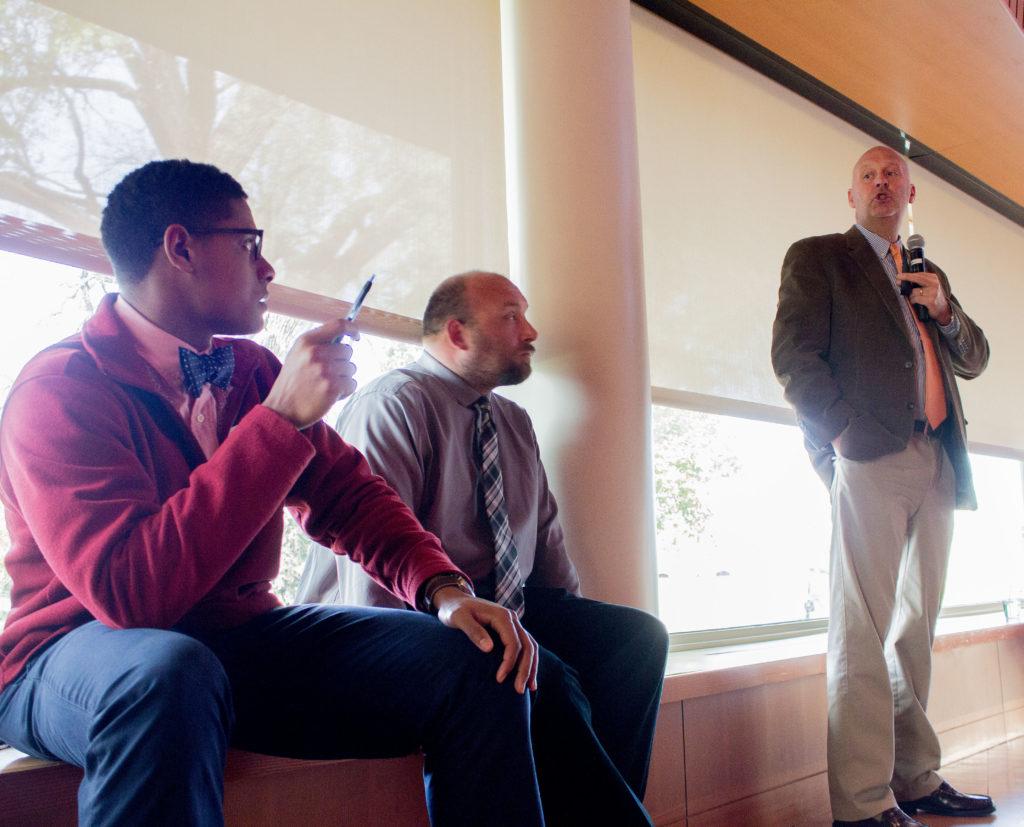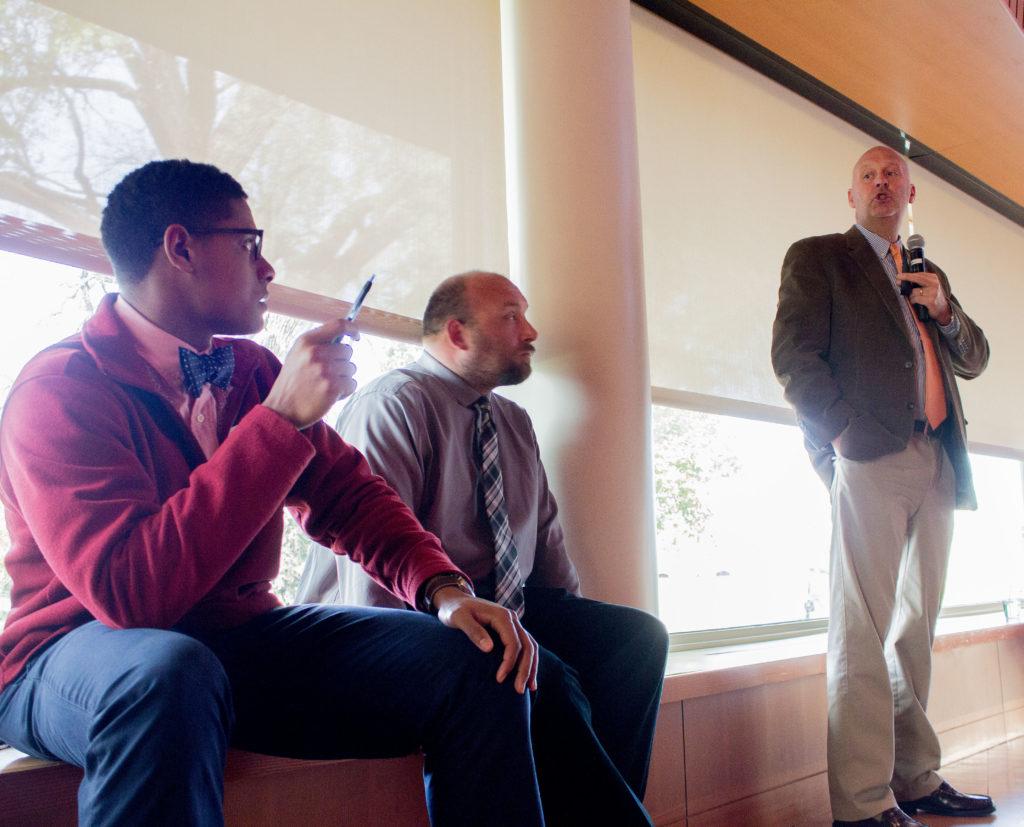
The police chief of the City of Grinnell, Dennis Reilly, gave a presentation entitled “Know Your Rights” during community hour this past Tuesday. Throughout the presentation, Reilly, who has been the chief of police since 2012, explained the types of encounters that members of the public may have with the police and shared tips for interacting with them.
Reilly described the lowest level of street encounters: inquiries and voluntary conversations. Reilly explained that police officers can approach anyone in a public place and ask questions if the individual is willing to answer. These questions can include asking to examine someone’s identification or requesting an individual’s consent to search their person or property. Reilly explained that voluntary encounters are not considered seizures under the fourth amendment because there is no restraint of the individual’s movement and the conversation is voluntary for both parties.
Reilly explained that fourth amendment protections from unreasonable seizure do apply, however, in investigative stops or detentions. According to Reilly, investigative stops are temporary and require reasonable suspicion of a criminal activity. In investigative stops, an individual is required to stop, unlike in voluntary situations. The stops are intended to freeze the action, so the officer can get more information, according to Reilly.
In demonstrating what constitutes an investigative stop, Reilly stated that, “A stop takes place whenever there is a show of authority.” He then portrayed the difference between an officer requesting someone to come speak with them and commanding them to enter a conversation, emphasizing that the command demonstrated a show of authority.
Reilly mentioned, however, that he tries to keep conversations voluntary as much as possible because they tend to give him more information that helps him confirm or deny his suspicion of criminal activity. As a result, Reilly often does not inform people why they were detained immediately, but ensures they are informed at the end of the encounter.
An audience member pressed Chief Reilly on the information officers gain throughout investigative encounters, suggesting that some encounters can lead to unrelated convictions like drug arrests.
“When are [police officers] supposed to look for things that are not based on a complaint or specific evidence?” the audience member asked.
“They’re always looking. That’s our job. We’re always looking for that thing that just doesn’t fit right,” Reilly said. “But it can’t be a hunch. [The officer] has to have a reasonable, articulable suspicion, a reason, for stopping that person, and the purpose of that stop is to either confirm or deny the suspicion.”
Reilly continued, explaining that individuals are not obligated to answer questions, but that it’s a good idea to cooperate with police, so that the issue can get resolved as easily as possible and so that the encounter does not escalate into an arrest situation. According to Reilly, situations escalate when an individual flees because they are then interfering with official acts, an offense that warrants arrest.
Chief Reilly wrapped up his presentation with a discussion of Miranda rights, arrests and searches. Reilly stated that police do not need to read an individual their Miranda rights during investigative stops. However, once an individual is in custody and encounters interrogation, their Miranda rights kick in. According to Reilly, individuals are arrested and taken into custody when officers have a probable cause for believing that they have committed or attempted to commit a criminal act. This decision must be made given the facts and circumstances in keeping with their Fourth Amendment rights, which protect from unreasonable search and seizure.
Finally, Reilly discussed how people assume that the police always need a warrant to search a person or object for contraband or evidence relating to a crime. However, there are a number of exceptions in which the police can search individuals, including incidents to arrest, inventories, plain view of something illegal, moveable vehicles, exigent circumstances, consent and abandonment.
Reilly’s presentation was part of an effort by the Student Government Association (SGA) to improve the relationship between the Grinnell police department and the student body. Vice President of Student Affairs Kahlil Epps ’18 spearheaded the effort with the intent of giving both domestic and international students an opportunity to interact with the local police because they may not have had many encounters with police in the past.
“I thought it would be very valuable to have the police come in, introduce themselves and answer any type of question that students had,” Epps said.
Epps described other ways in which he has tried to bring students and the police together. He pointed to a successful conversation he facilitated between the hosts of the off-campus 10/10 party and a police officer in early October. Throughout the conversation, the officer explained what the hosts should do to prevent negative encounters with the police throughout the course of the event. 10/10 did not have any police encounters.
Epps further explained that he hopes to continue developing opportunities for students to interact with local police personnel including office hours with the police chief or discussions with officers who eat meals in the dining hall.
“All of these things will hopefully help students become more comfortable talking with the police and will help them know why they’re there,” Epps concluded.



































































